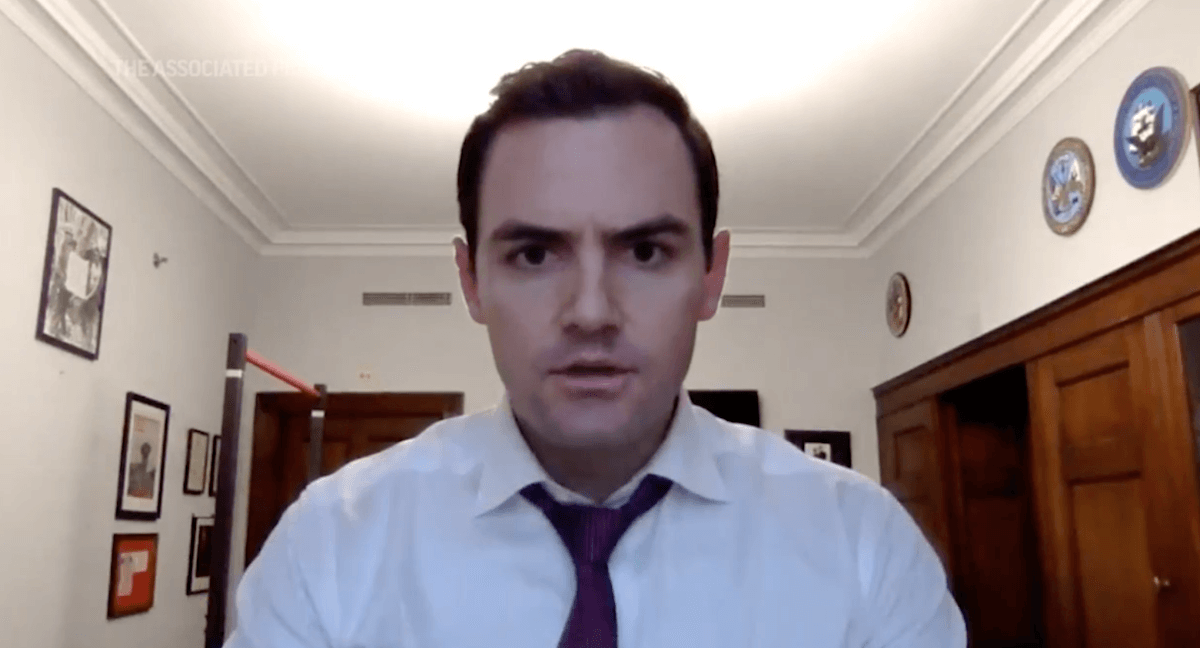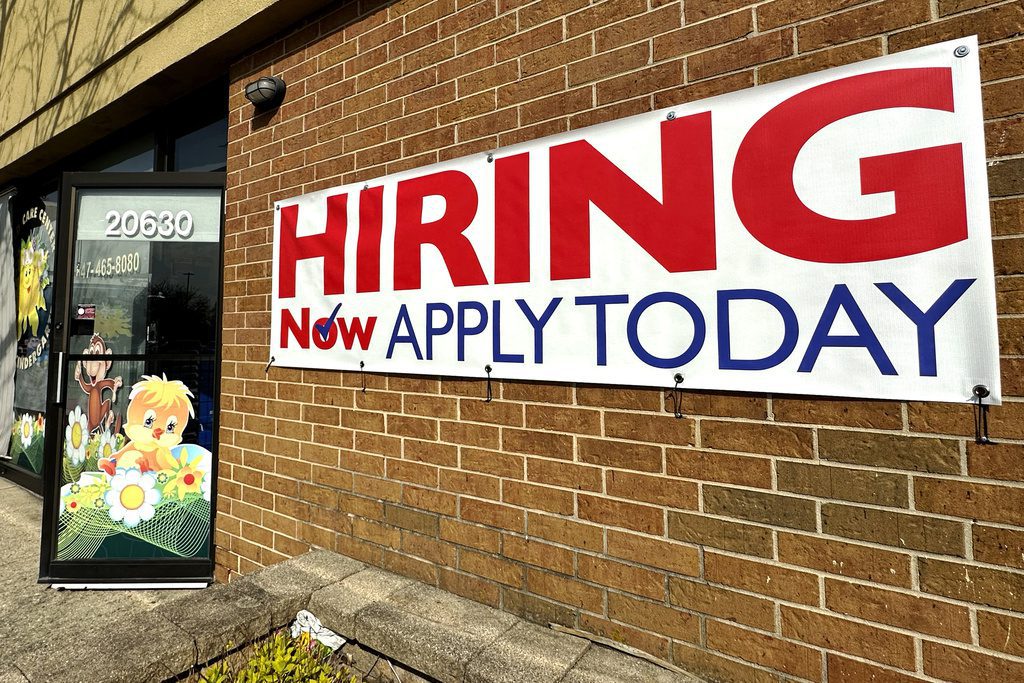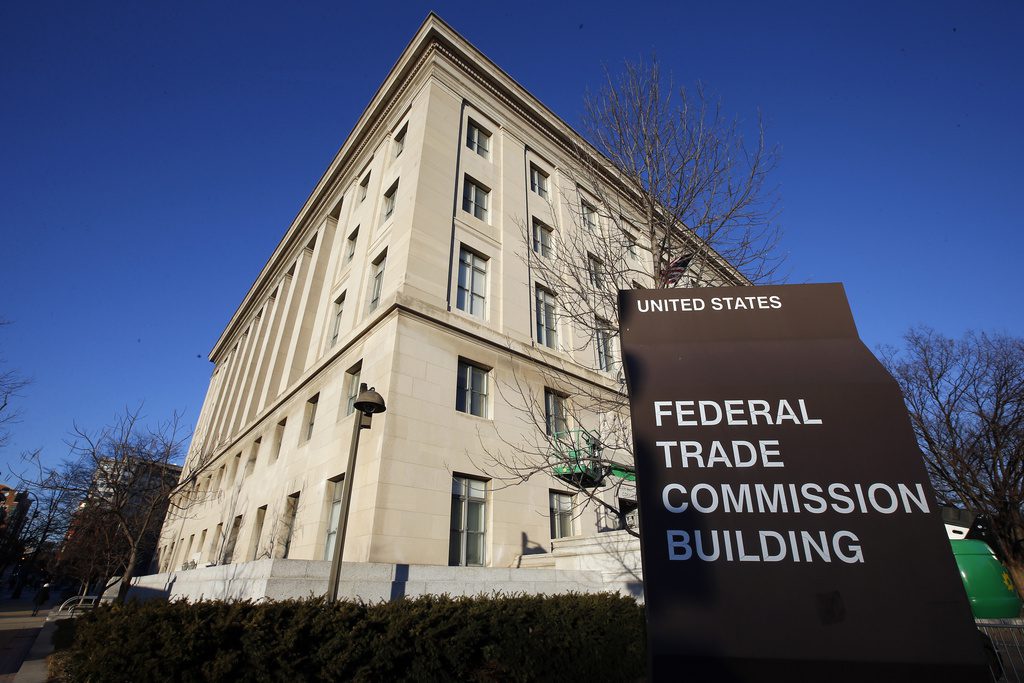
#image_title
#image_title
City of Green Bay is getting $25 million in recession relief, but Gallagher calls a financial boost for essential workers a “bonus for bureaucrats.”
[This is the first in a series of articles what each Wisconsin member of Congress had to say about whether they supported or opposed the impact of the American Rescue Plan on their congressional district.]
US Rep. Mike Gallagher (R-Green Bay) represents Wisconsin’s purple 8th Congressional District, but there have been no appeals to bipartisanship from him in recent weeks, as he has come out swinging against President Joe Biden’s American Rescue Plan Act, despite its 70% approval in national polling.
Gallagher, like many of his Republican colleagues—none of whom voted in support of the bill—argued that only a small percentage of the package is allocated for “actually fighting the coronavirus,” in areas such as vaccine distribution, testing and contact tracing.
“Instead of trying to work across the aisle, House Democrats opted to pass a liberal wish list poorly disguised as Coronavirus relief,” Gallagher said, maligning the package of financial assistance, unemployment benefits, food assistance, eviction prevention, and more as “Speaker Pelosi’s $1.9 trillion payout disguised as Coronavirus relief.”.
The COVID-19 stimulus plan President Joe Biden signed into law last week includes $20 billion to Wisconsin, including $5,600 in direct aid to an eligible family of four, $214 million in tax credit assistance, and an average tax break of $2,510 for families with children—all included in a variety of spending initiatives intended to help people financially amid the ongoing coronavirus pandemic and the recession it triggered.
Earlier: 90% of Wisconsinites Are Likely to Get Direct Aid Through the American Rescue Plan
Tax credits also are part of the initiative, as is funding for schools and child care providers, subsidies for health insurance and Medicaid, and additional funding for small businesses, including dollars designated specifically for bars and restaurants.
In a press release, Mayor Eric Genrich of Gallagher’s hometown of Green Bay applauded the legislation, which will provide an estimated $25.23 million to the city to fund recovery efforts. While the rules have not been finalized, the bill broadly states that cities can use the funds to fill the revenue losses from the pandemic as well as invest in infrastructures such as water, sewer and broadband.
“I am more optimistic than ever about our future as a city,” said Genrich. “These funds will allow us to make strategic investments in Green Bay’s people, businesses, and infrastructure, enabling us to help reconstruct a local economy and community that is more resilient to future challenges and better attuned to new opportunities.”
Gallagher, in a statement released the day he voted against the bill and another released the day it was signed into law, laid out the reasons he opposed the bill, despite overwhelming public support from Americans, including majority support from Republicans.
Gallagher took issue with the bill allocating $130 billion to schools without any guarantee that schools reopen. While the federal government can provide resources to facilitate re-opening, which ARPA does, the final decision on when to bring students back into the classroom lies with state and local governments. Gov. Tony Evers last month said that while he did not believe that teachers needed to be fully vaccinated to reopen, ultimately he wanted to leave those decisions in the hands of local school districts.
He also opposed added benefits for federal employees, such as workers at the US Postal Service, Department of Veterans Affairs, Transportation Security Administration, and the Federal Aviation Administration. One program, the Emergency Federal Employee Leave Fund, allows 15 weeks of paid leave (capped at $1,400 per week) if employees are required to quarantine due to COVID-19 exposure, care for a relative with COVID-19, receive a vaccine or are recovering from vaccine side effects or if their child is attending virtual school. That program is not available to employees who are able to work remotely and is set to expire Sept. 30.
He also wrote he was opposed to:
- The $13 an hour or $25,000 a year premium pay for essential workers, calling it a “bonus for bureaucrats.”
- The omission of the Hyde amendment, which would bar healthcare providers from using federal Medicaid funds to cover the cost of an abortion. The amendment would require women living below the federal poverty line to cover that cost out-of-pocket.
- Funds for states which he characterized as a “$350 billion to bailout blue states” despite red, blue and purple states, such as Wisconsin, receiving funds.
- The $300 federal unemployment benefits extended through September.
- Allowing undocumented people living in the United States to access some benefits.
The recent Pew Research Center poll of 12,055 adults across the country found that 57% of Republicans surveyed support the Biden plan.
Politics

Biden administration bans noncompete clauses for workers
The Federal Trade Commission (FTC) voted on Tuesday to ban noncompete agreements—those pesky clauses that employers often force their workers to...

Opinion: Trump, GOP fail January 6 truth test
In this op-ed, Milwaukee resident Terry Hansen reflects on the events that took place on January 6, the response from Trump and other GOP members,...
Local News

Readers Poll: Top Bowling Alleys in Wisconsin
Looking for the best bowling in Wisconsin? Look no further! Our readers have spoken in our recent poll, and we have the inside scoop on the top...

8 Wisconsin restaurants Top Chef judges are raving about
Top Chef’s 21st season is all about Wisconsin, and on-screen, it’s already apparent that the judges feel right at home here. But, while filming in...



